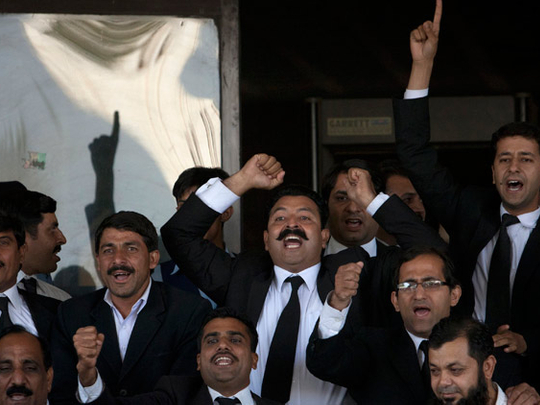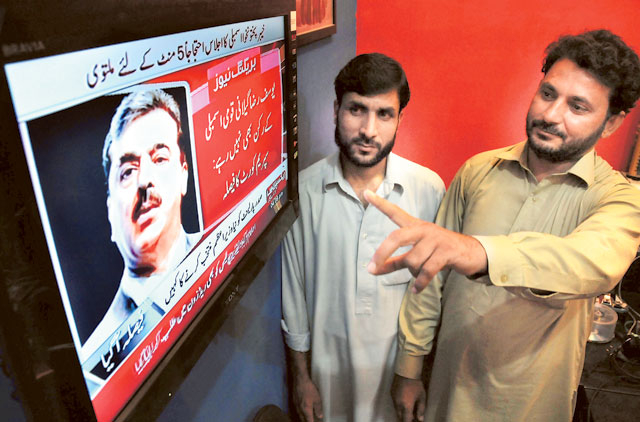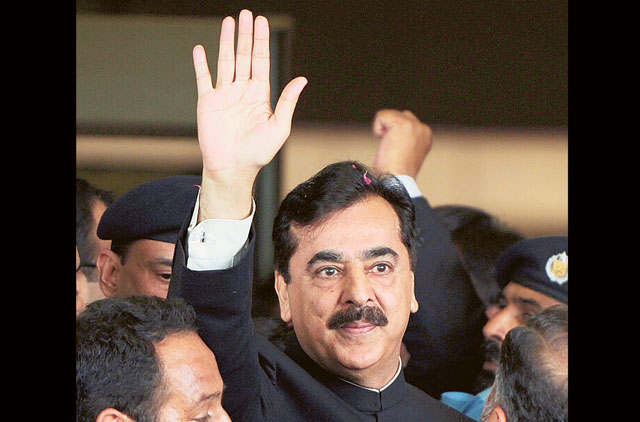
Dubai: Has justice prevailed with the sacking of Prime Minister Yousuf Raza Gilani? It is a long and controversial debate that we can leave aside for now.
The point of discussion is what lies behind this draconian decision by the Supreme Court and what lies next. Some political analysts believe that the decision was hurried against the backdrop of efforts to malign the Chief Justice, Iftikhar Mohammad Chaudhry, by exposing alleged corruption cases against one Arsalan Chaudhry by a Pakistan property tycoon, Riaz Malek, in recent weeks.
Whatever the case may be, one thing is clear: that the decision is likely to throw the country into new political turmoil and may derail democracy at a time when there is friction between Pakistan and the United States over the closure of Nato supply routes by Pakistan and consequent blocking of US financial aid to Pakistan.
There is no doubt that by announcing the decision, the Supreme Court has proved that no one is above the law. This message has also sent shock waves in the presidency because if the prime minister can be sacked for not obeying court orders to write a letter to Swiss authorities to reopen graft cases against President Asif Ali Zardari, the court might also invoke military leadership to implement its decisions against the president. However, the ruling Pakistan Peoples Party (PPP) still has some hope as the parliament is intact and they have the majority in the House.
Though a new prime minister will be announced shortly, it is still to be seen for how long he will be able to survive the office because the court may also ask him to obey its orders and write a letter to Swiss authorities against the President and he may face the same fate as his predecessor, Gilani.
The PPP will try its best to complete its five years in office and hold elections in March next year. While the opposition is expected to draw daggers calling for election as early as October this year, the PPP will try to postpone it until next year as they will now be all out to do damage control and give some relief to people who have been protesting on streets against the massive power cuts during the scorching heat.
Political activities will gear up in Pakistan as opposition parties will go all out to campaign for the next elections but there is also fear of political instability and more break-ups in the power corridors. It is just the beginning.
Appealing decision
According to legal experts, Gilani has a right to lodge a plea in the Supreme Court within 30 days for a review of the decision. But the final decision will be taken by the PPP’s Central Executive Committee.
Earlier, a seven-judge bench had on April 26 found Gilani guilty of “wilfully flouting” a Supreme Court order to write a letter to Swiss authorities for reopening graft cases against President Asif Ali Zardari, which were closed.
Gilani had decided not to file an appeal against his conviction, saying he did not consider it necessary.
Tuesday's development marked the culmination of a judiciary-executive tussle that had started in 2009 after a rejuvenated Supreme Court, after the exit of former military ruler Pervez Musharraf, struck down his National Reconciliation Ordinance as illegal and unconstitutional.
Though a new prime minister will be announced shortly, it is still to be seen for how long he will be able to survive the office because the court may also ask him to obey its orders.














